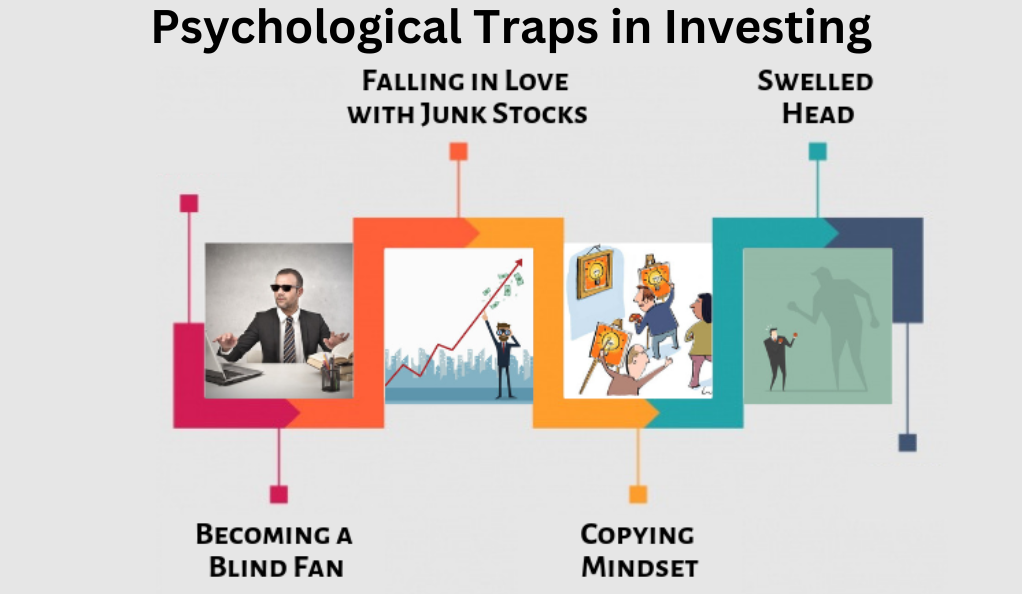Mastering the Mind: Harnessing Behavioral Finance Insights for Smarter Investing
Behavioral finance is a field that combines psychology and economics to explain why and how investors act and to analyze how this behavior affects market movements. Recognizing that humans are not always rational, behavioral finance seeks to understand the cognitive processes behind investment decisions.
Traditional finance theories assume that investors are rational and make decisions based solely on logic. However, real-world observations show that emotions, biases, and other psychological factors play a significant role in investment choices. This realization has led to a deeper exploration of human behavior in financial markets, revealing patterns and tendencies that can either aid or hinder investment success.
The Psychological Traps in Investing

There are several psychological biases that can hinder an investor’s ability to make sound decisions. Recognizing these can be the first step to smarter investing.
- Loss Aversion
Investors often feel the pain of a loss more acutely than the pleasure of a gain. This can lead to holding onto losing investments for too long or selling winning ones too soon. The emotional impact of a loss can cloud judgment and lead to decisions based on fear rather than logic. - Confirmation Bias
This is the tendency to seek out information that confirms one’s pre-existing beliefs and ignore information that contradicts them. It can result in a narrow view of the market and missed opportunities. By only focusing on information that aligns with our beliefs, we can become blind to potential risks or alternative strategies. - Overconfidence
Some investors believe they have superior knowledge or ability, leading them to take on excessive risk. This can result in significant losses if the market doesn’t behave as anticipated. Overconfidence can also lead to a lack of diversification, as investors might put too much faith in a single investment or strategy.
Strategies to Overcome Behavioral Biases
To master the mind and invest smarter, one must be aware of these biases and develop strategies to counteract them.
- Diversification
Spreading investments across various asset classes can help mitigate the emotional impact of losses in any one area. Diversification not only reduces risk but also provides a balanced approach to investing, ensuring that a downturn in one sector doesn’t devastate an entire portfolio. - Seeking Contrarian Views
Actively seeking out opinions that challenge your beliefs can help counteract confirmation bias. By exposing oneself to a variety of perspectives, an investor can gain a more rounded view of the market and potential investment opportunities. - Regular Portfolio Reviews
Periodic reviews can help ensure that investment decisions remain aligned with long-term goals and not short-term emotions. By regularly assessing performance and adjusting strategies as needed, investors can stay on track and avoid making impulsive decisions based on temporary market fluctuations.
Applying Behavioral Finance in Alternative Investments

Alternative investments, such as art, collectibles, private equity, and real estate, present unique challenges and opportunities. Behavioral finance insights can be particularly valuable in these areas.
- Emotional Attachment
Investments like art or collectibles can carry emotional value, making it essential to separate personal attachment from investment potential. While it’s natural to have a personal connection to a piece of art or a collectible, it’s crucial to assess its market value objectively. - Lack of Liquidity
Assets like real estate or private equity may not be as liquid as traditional stocks, requiring a long-term perspective and understanding of inherent risks. Investors need to be prepared for the possibility that they might not be able to quickly sell these assets, especially in volatile market conditions. - Research and Expertise
Given the specialized nature of many alternative investments, seeking expert opinions and thorough research is crucial. Unlike traditional stocks and bonds, alternative investments often require specialized knowledge to assess their true value and potential for growth.
Conclusion
Mastering the mind is crucial for any investor, especially in the realm of alternative investments. By understanding and harnessing the insights from behavioral finance, investors can make more informed decisions, avoid common psychological traps, and potentially achieve better returns. As the world of alternative investments continues to evolve, those equipped with both financial knowledge and psychological insights will be best positioned to navigate its complexities.
In the ever-changing landscape of investments, understanding human behavior can be as crucial as understanding market trends. By merging these two realms of knowledge, investors can pave the way for a more successful and informed investment journey.
FAQs
Behavioral finance is a field that combines psychology and economics to understand how investors make decisions and how these decisions affect market movements. It recognizes that investors are not always rational and are influenced by emotions and biases.
Loss aversion refers to the tendency of investors to feel the pain of a loss more intensely than the pleasure of a gain. This can lead them to hold onto losing investments for too long or sell winning ones prematurely.
Diversification, or spreading investments across various asset classes, can help reduce the emotional impact of losses in any one area. It provides a safety net against adverse market movements in specific sectors or assets.
Emotional attachment, especially in assets like art or collectibles, can cloud judgment. Investors might overvalue an asset due to personal attachment, leading to suboptimal investment decisions.
Alternative investments can carry unique risks, such as lack of liquidity or specialized knowledge requirements. However, they also offer diversification benefits. It’s essential to understand these risks and consult experts when venturing into alternative investment spaces.
